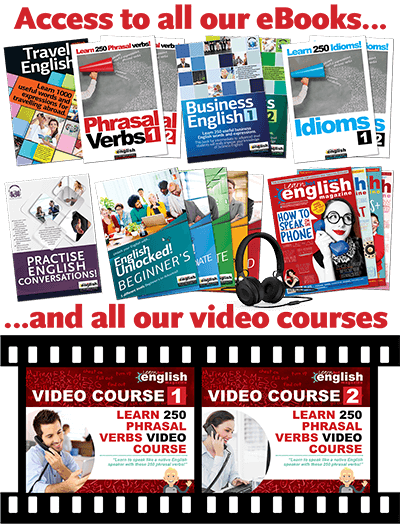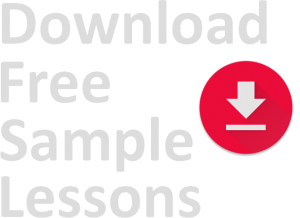Learn business English: Describing a new company
Are there any new businesses in your town or city?
What services do they offer?
What products are they selling?
In this lesson, you’re going to learn some useful words and expressions for describing a new business or company. And then you’re going to watch a video conversation with two people talking about this topic so you can really learn the words. Ready? OK, let’s go!
Level: Intermediate (B1) to Upper Intermediate (B2)
Vocabulary
Here are some useful words that appear in the video.
To run a business
If you “run a business”, you manage, operate and control it: “My sister runs a small shoe shop in the city centre.”
Rewarding
If something is “rewarding”, you enjoy it, and it makes you happy and brings you benefits (financial or other): “My new job is rewarding in many ways.”
Tough
If something is “tough”, it’s difficult: “Running your own business can be really tough.”
Up-and-running
If something is “up-and-running”, it’s operating and functioning properly: “The new computer system is up-and-running so you can use it.”
To come in
If business “comes in”, you receive customers or new orders, which is good for your business: “A lot of new business came in after we put the advert in the newspaper.”
Do you receive English classes in your company? Learn Hot English students get all of our fantastic materials within structured courses along with a dynamic, native English teacher. Why not ask us for a quote for online language classes today? Contact business@learnhotenglish.com or call 0034-914217886
To open up
If a business “opens up”, it starts operating and you can visit it and use its services: “Several new banks have opened up in the city centre.”
The location
The “location” is the place where a house, shop or business is: “Location is really important when deciding where to open your new business.”
To make a profit
If you “make a profit”, you start to earn money from a business after paying all your costs: “We made a profit of $40,000 last year, which wasn’t bad.”
To break even
If a business “breaks even”, it makes enough money to cover its costs (without making a profit): “We still aren’t breaking after 2 years of operating this business.”
To promote a business
If you “promote a business”, you tell people about it so there are more customers, orders, sales…: “They promoted the new model of car on the television.”
Video conversation
You’re going to watch a conversation in which Alice is telling Julian about her new business: a bicycle repair shop. Watch the video and answer these questions. [answers below]
-
Where has Alice opened her bicycle repair shop?
-
Why does Alice want to employ an assistant?
-
How much rent is she paying per month?
-
When does Alice think she’ll start making a profit?
-
What does Julian say that he’ll do?
Top tip
It’s important to watch the video once without stopping. Don’t worry if you don’t understand everything – just try to understand as much as possible. Then, watch it again, this time stopping where you want so you can answer the questions. Finally, watch the video and read the script (see below) at the same time. This is great for your listening skills!
Speaking
Now talk about this topic with a friend or classmate. Make notes and try to use as much of the new language as you can.
Video script
Julian: So, tell me, what’s that like, running your own business?
Alice: It’s been… it’s been really interesting. It’s, it’s tough, but, it’s, I’m loving it. It’s really rewarding, I have to say.
Julian: OK, and in the end, you finally opened a bicycle repair shop, right?
Alice: Yes, yes, it’s a bicycle repair shop. We just opened up in the centre of town, maybe just, probably three months ago or so. So, we’re still up and running a little bit.
Julian: OK and are you working a lot? Like everyone says in their first year of business, you have to work, work, work.
Alice: Yeah, and it’s so true. And I knew it was true beforehand, but now that I’m experiencing it, it’s like, oh, it’s that times ten. [Oh] Yeah I’m working a lot, erm, and actually I’m in the process right now of trying to find an assistant, which… [OK good.] is a good thing because business is coming in, but it’s a lot of work for just one person.
Julian: For sure, and is it expensive having a shop in the centre of the city?
Alice: Yeah, it is a bit, but the location is ideal so it’s perfect, but it’s about $1,000 a month, more or less.
Julian: Oh, OK.
Alice: Yeah, yeah. But I love it there though, the location’s great.
Julian: That’s fantastic! And so how long until you finally start earning all of this money?
Alice: Well, what I’m hoping is… I mean this year we’ll probably just barely be breaking even, but I think by next year I’ll be able to start making a profit so [OK] that’s what we’re waiting for!
Julian: That’s excellent! I will definitely promote your business everywhere I can.
Alice: Thank you so much! Yeah, if you know anybody who needs a repair, send them in.
Julian: I do, so I’ll be there next week.
Alice: Oh my gosh, OK. I’ll see you then.
Julian: See you next week!
Alice: Perfect.
Answers
-
Where has Alice opened her bicycle repair shop? In the centre of town
-
Why does Alice want to employ an assistant? To help with all the work
-
How much rent is she paying per month? About $1,000
-
When does Alice think she’ll start making a profit? Next year
-
What does Julian say that he’ll do? He says that he’ll promote the business, and use its repair services.



